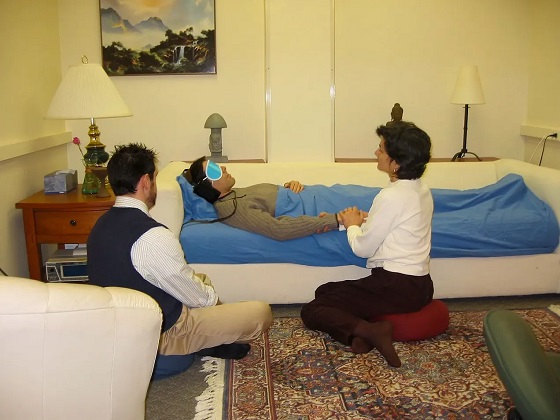Alberta
Team sports and group dance not yet approved. Restaurants open with restrictions. – Details on health measures easing February 8

From the Province of Alberta
More health measures will ease on Feb. 8
Additional health measures will be eased for restaurants, indoor fitness and some children’s activities, effective Feb. 8.
Step 1 of Alberta’s four-step framework to ease restrictions is based on a COVID-19 hospitalization benchmark of 600, including intensive care patients. This benchmark was reached on Jan. 28.
The full, four-step framework for easing restrictions can be viewed here.
“Albertans have done a great job of bringing our numbers down from our peak in December. We aren’t out of the woods yet, but there are opportunities where we can safely ease restrictions while also protecting our health-care system. This first step is a cautious one, and it will bring relief to many Albertans and Alberta businesses.”
“We are able to ease restrictions on Feb. 8 thanks to the efforts of Albertans. We need to stick to a stepped approach so we don’t risk the steady improvements we’ve made. Although restrictions will remain in place, the path forward gives us all more options in our daily lives.”
Indoor and outdoor children’s sport and performance
- Children’s sport and performance activities are permitted if they are related to school activities, such as physical education classes.
- This will allow K-12 schools and post-secondary institutions to use off-site facilities to support curriculum-related educational activities.
Indoor fitness
- Only one-on-one training is permitted for indoor fitness activities (e.g. fitness in dance studios, training figure skating on ice, one-on-one lessons).
- One-on-one sessions cannot interact with others and there must be a minimum of three metres distance between sessions in the same facility.
- Sessions have to be scheduled or by appointment.
- No drop-in for individuals or groups is allowed.
- No sports games, competitions, team practice, league play or group exercise of any kind.
- Trainers must be professional, certified and/or paid trainers who are providing active instruction and correction. Passive supervision of a physical activity is not considered training.
- Trainers should remain masked during the session; clients are not required to wear a mask while exercising.
- More than one trainer and client ‘pair’ are allowed into the facility, studio, rink, court, pool, ice surface, etc., as long as:
- Each trainer and client stays three metres away from all other trainers and clients at all times, including in entryways and exits.
- Each trainer only interacts with their assigned client, and each client only interacts with their assigned trainer.
- No interaction between clients or between trainers is allowed.
- No ‘cycling through’ multiple trainers, as in circuit training.
Restaurants, cafes and pubs
- Restaurants, cafes and pubs must collect the contact information of one person from the dining party.
- Up to a maximum of six people per table; individuals must be from same household or the two close contacts for people living alone.
- Liquor service ends at 10 p.m.
- In-person dining must close by 11 p.m.
- No entertainment allowed (e.g., no VLTs, pool tables, live music, etc.)
Alberta’s government is responding to the COVID-19 pandemic by protecting lives and livelihoods with precise measures to bend the curve, sustain small businesses and protect Alberta’s health-care system.
Alberta
Big win for Alberta and Canada: Statement from Premier Smith

Premier Danielle Smith issued the following statement on the April 2, 2025 U.S. tariff announcement:
“Today was an important win for Canada and Alberta, as it appears the United States has decided to uphold the majority of the free trade agreement (CUSMA) between our two nations. It also appears this will continue to be the case until after the Canadian federal election has concluded and the newly elected Canadian government is able to renegotiate CUSMA with the U.S. administration.
“This is precisely what I have been advocating for from the U.S. administration for months.
“It means that the majority of goods sold into the United States from Canada will have no tariffs applied to them, including zero per cent tariffs on energy, minerals, agricultural products, uranium, seafood, potash and host of other Canadian goods.
“There is still work to be done, of course. Unfortunately, tariffs previously announced by the United States on Canadian automobiles, steel and aluminum have not been removed. The efforts of premiers and the federal government should therefore shift towards removing or significantly reducing these remaining tariffs as we go forward and ensuring affected workers across Canada are generously supported until the situation is resolved.
“I again call on all involved in our national advocacy efforts to focus on diplomacy and persuasion while avoiding unnecessary escalation. Clearly, this strategy has been the most effective to this point.
“As it appears the worst of this tariff dispute is behind us (though there is still work to be done), it is my sincere hope that we, as Canadians, can abandon the disastrous policies that have made Canada vulnerable to and overly dependent on the United States, fast-track national resource corridors, get out of the way of provincial resource development and turn our country into an independent economic juggernaut and energy superpower.”
Alberta
Energy sector will fuel Alberta economy and Canada’s exports for many years to come

From the Fraser Institute
By any measure, Alberta is an energy powerhouse—within Canada, but also on a global scale. In 2023, it produced 85 per cent of Canada’s oil and three-fifths of the country’s natural gas. Most of Canada’s oil reserves are in Alberta, along with a majority of natural gas reserves. Alberta is the beating heart of the Canadian energy economy. And energy, in turn, accounts for one-quarter of Canada’s international exports.
Consider some key facts about the province’s energy landscape, as noted in the Alberta Energy Regulator’s (AER) 2023 annual report. Oil and natural gas production continued to rise (on a volume basis) in 2023, on the heels of steady increases over the preceding half decade. However, the dollar value of Alberta’s oil and gas production fell in 2023, as the surging prices recorded in 2022 following Russia’s invasion of Ukraine retreated. Capital spending in the province’s energy sector reached $30 billion in 2023, making it the leading driver of private-sector investment. And completion of the Trans Mountain pipeline expansion project has opened new offshore export avenues for Canada’s oil industry and should boost Alberta’s energy production and exports going forward.
In a world striving to address climate change, Alberta’s hydrocarbon-heavy energy sector faces challenges. At some point, the world may start to consume less oil and, later, less natural gas (in absolute terms). But such “peak” consumption hasn’t arrived yet, nor does it appear imminent. While the demand for certain refined petroleum products is trending down in some advanced economies, particularly in Europe, we should take a broader global perspective when assessing energy demand and supply trends.
Looking at the worldwide picture, Goldman Sachs’ 2024 global energy forecast predicts that “oil usage will increase through 2034” thanks to strong demand in emerging markets and growing production of petrochemicals that depend on oil as the principal feedstock. Global demand for natural gas (including LNG) will also continue to increase, particularly since natural gas is the least carbon-intensive fossil fuel and more of it is being traded in the form of liquefied natural gas (LNG).
Against this backdrop, there are reasons to be optimistic about the prospects for Alberta’s energy sector, particularly if the federal government dials back some of the economically destructive energy and climate policies adopted by the last government. According to the AER’s “base case” forecast, overall energy output will expand over the next 10 years. Oilsands output is projected to grow modestly; natural gas production will also rise, in part due to greater demand for Alberta’s upstream gas from LNG operators in British Columbia.
The AER’s forecast also points to a positive trajectory for capital spending across the province’s energy sector. The agency sees annual investment rising from almost $30 billion to $40 billion by 2033. Most of this takes place in the oil and gas industry, but “emerging” energy resources and projects aimed at climate mitigation are expected to represent a bigger slice of energy-related capital spending going forward.
Like many other oil and gas producing jurisdictions, Alberta must navigate the bumpy journey to a lower-carbon future. But the world is set to remain dependent on fossil fuels for decades to come. This suggests the energy sector will continue to underpin not only the Alberta economy but also Canada’s export portfolio for the foreseeable future.
-

 2025 Federal Election2 days ago
2025 Federal Election2 days agoMark Carney refuses to clarify 2022 remarks accusing the Freedom Convoy of ‘sedition’
-

 Business2 days ago
Business2 days agoSaskatchewan becomes first Canadian province to fully eliminate carbon tax
-

 Automotive2 days ago
Automotive2 days agoElectric cars just another poor climate policy
-

 International2 days ago
International2 days agoTrump’s ‘Golden Dome’ defense shield must be built now, Lt. Gen. warns
-

 Alberta1 day ago
Alberta1 day agoOwner sells gas for 80 cents per litre to show Albertans how low prices ‘could’ be
-

 2025 Federal Election1 day ago
2025 Federal Election1 day agoMORE OF THE SAME: Mark Carney Admits He Will Not Repeal the Liberal’s Bill C-69 – The ‘No Pipelines’ Bill
-

 Energy2 days ago
Energy2 days agoWhy are Western Canadian oil prices so strong?
-

 Break The Needle1 day ago
Break The Needle1 day agoWhy psychedelic therapy is stuck in the waiting room






